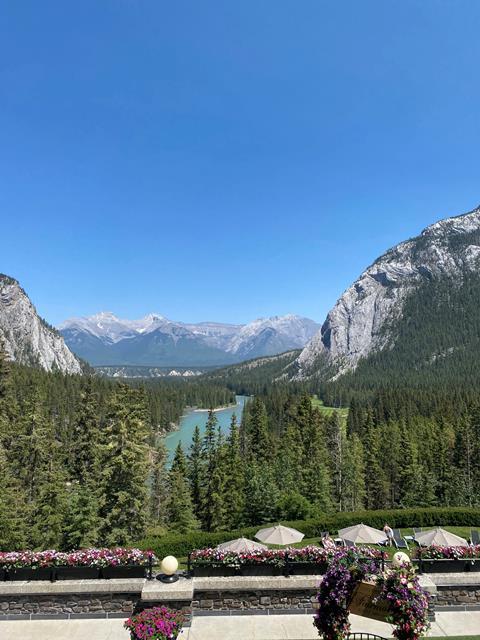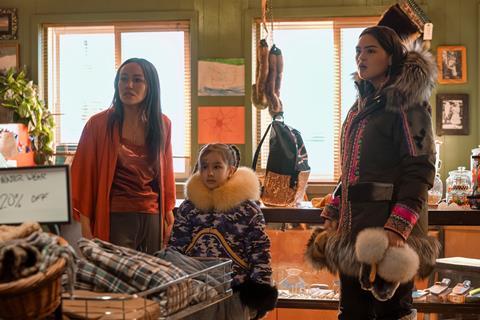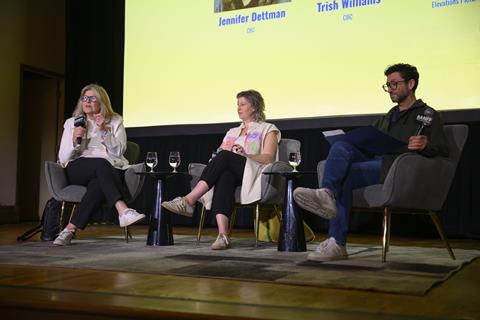At Banff World Media Festival, delegates saw how Canada’s difficult relationship with America has galvanised local broadcasters’ ambitions
The setting of the Banff World Media Festival, a Canadian resort town nestled in the Rocky Mountains, is always picturesque. But for this year’s festival, which took place last week, the political backdrop of squeezed budgets and Donald Trump threatening to make the county the 51st state of America, was less so.

From the signs in the grocery shops advertising which produce was completely Canadian grown or owned, to the content wish lists of broadcasters such as CBC, Bell Media and TVO, the response to the rumblings from south of the border was clear: Canadians want to consume Canadian content.
A staple of the US television industry’s production economy, broadcasters across Canada were bullish on turning the nation’s reputation from that of a service provider to a creative hub.
“Canda has done a very good job for forty-ish years advertising itself as a place to come for efficient content,” Bell Media’s Justin Stockman told audiences during a co-production session. “We’re taking this moment to say, ‘No, it’s a place where you can elevate content’.”
The vice president of content development and programming spoke of his desire to “repatriate” Canadian creatives who had left to “work on bigger-budget projects”.
These comments were also echoed by Andrew Addison, senior vice president of strategic communications and member services at the Canadian Media Producers Association.
“The nice thing about domestic content is the ability to own and control what you do, and importantly be the master of your own destiny as an industry,” he tells Broadcast Intelligence.
This shift isn’t something new – Addison notes that the sector was impacted by the 2023 writers and actors strikes in the US, simply due to how many US productions shoot in Canada and utilise its production talent.
Addison says he looks at the idea of service work versus domestic production as being like “great factory jobs in a high-tech factory”.
“They’re well-paying and you’re working on the best equipment. But when you don’t own the factory, and the owner lives in country far away, they can shut it down and all the jobs are gone. So what we’re aiming for is to be our own factory owners and build our own strong factories.”
Commissioning for Canadians
CBC’s Jennifer Dettman and Trish Williams, executive directors of unscripted and scripted, respectively, were both keen to highlight their importance as a public service broadcaster commissioning content for Canadians.
This ranges from ensuring that audiences who don’t feel the PSB is representing them are met where they are, to “celebrating and upholding the Canadian identity” across its many regions and ethnicities.

Similarly, TVO head of programming Natasha Negrea is focused on her Ontario-based audience first and foremost.
All TVO content has to be educational – it is part of the ministry of education in Ontario and its children’s content is linked with the local curriculum. It can also play very locally with its documentary content. Despite this, the broadcaster regularly co-produces globally.
Meanwhile at Bell Media, a core part of Stockman’s strategy is to program “shows where the focus is showing Canadians themselves on screen”.
The Canadian broadcasters are looking inwards in terms of content strategy but there is also a need for co-productions for financial strategy.
While the US isn’t off limits for Canada, and remains an important creative and production partner, the feeling that the US is no longer the reliable partner it once was still lingers. And beyond the current tensions, while Canada has a treaty co-production agreement with 60 countries, its nearest neighbour isn’t one of them.
There does seem to be a natural alliance with content produced in Australia and the UK for English co-productions, and France for the nations French-speaking audience.
“Canadian producers have a real affinity for working with UK-based producers,” says Addison.
“There’s a track record of being able to reinforce with incentives and opportunities in each other’s markets that really leads to a robust opportunity for both for producers on both sides of the Atlantic for sure.”
Meanwhile TVO’s Negera confirms she has “a couple of projects right now with Australia”, adding that as “the ABC and TVO both place a lot of value on educational children’s content and diverse storytelling, it really makes sense”.
Similarly, CBC made headlines at Banff World Media Festival for noting that it can no longer produce scripted content without a partner, with Dettman highlighting that proposed scripted series need to answer: “Will your project be financeable or attract another partner? Is it marketable in the international marketplace?”
CBC’s most notable recent co-production is within Canada, and comes from a partnership with Netflix Canada, and indigenous channel APTN.
North of North, which was originally developed by CBC and APTN, debuted at number 9 on Netflix’s global charts w/c April 7.

The series, which follows a young Inuk mother trying to reinvent herself in her small community town, fulfils CBC’s idea of creating for a diverse range of Canadians, but funding globally.
Stockman also addressed the balance of making programmes for the Canadian audience alongside those that can be co-financed with global partners.
He admits that programmes that are for the Canadian audience might “not necessarily going to be the best sellers around the world”. Therefore, there is an interest to build programming that “takes all the great creativity of Canadians and build it with the globe in mind”.
Although Addison is keen to note the industry is well past its early 2000s portrayal.
Back then, he says, “even if something was truly Canadian, you would still find it would be set in generic North America because there was a misconception that it would sell easier… I think we’re past that.
“Canada right now is realizing that we’ve got such a great variety of stories to tell and we can stand proud and tell them.”









No comments yet